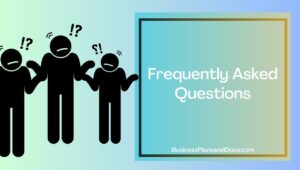Owning a small business is fun and rewarding. Just as you would decide to have auto insurance, home insurance, or renter’s insurance, it is essential for you to have business insurance in order to protect your business. There are many different types of business insurance and it is important for you to know exactly what type of insurance you will need for the maximum protection of your business.
In order to find what insurance you need for your business, you will want to have a detailed description of your business; reach out to more than one insurance agency, and know what key questions to ask those insurance agencies.
In the following paragraphs, I will teach you how to find business insurance coverage, where you look to get information for different types of insurance coverage, and how to be prepared before speaking with an insurance agent.
Detailed Description

The first step is to have a detailed description of your business. The more detailed your business is described, the better an insurance agent will be able to assist you. Before applying for business insurance, you will need to have a few pieces of information handy. The basic information that you will need is your company name, location of your business, years of operation, the nature of your business, the type of business entity, and current or past claims.
Did you know that if you are operating a home-based business that your homeowners insurance will not provide coverage for your business? As a business owner, you will want to invest in liability insurance, even if you work from home. Also, if you use your vehicle for business use, regular auto insurance will not cover your vehicle. Businesses can get commercial auto insurance through their auto insurance company.
Types of Business Insurance
There are many different business insurance policies. Each policy has its own purpose. The amount and type of business insurance you will need for your business will be determined by multiple factors. Here are some different types of business insurance, the importance of the insurance, as well as what is needed when applying for these types of business insurance. Keep in mind, there are additional insurance coverages that your particular business may need. These are the most common types of business insurance.
General Liability Insurance
General Liability Insurance, often referred to as Commercial General Liability, covers third-party bodily injury or property damages resulting from your products, services, and operations. General Liability will cover medical expenses and attorney fees that are related to those claims.
When applying for general liability insurance, you need to have the following information handy:
- Types of Clients and/or Industries you serve.
- Number of employees and/or contractors who work for you.
- If applicable, the percentage of work performed by contractors.
- Approximate business revenue for the last three years.
- Projected revenue for the next year, and how much is expected to come from your largest customer.
- Specific services you provide.
- Percent of Revenue that comes from each service you provide.
- Whether your day-to-day work may cause bodily injury or property damage to a third party.
Please keep in mind that General Liability Insurance will not cover intentional acts, auto accidents, punitive damages, workmanship professional mistakes or employee injuries.
Workers’ Compensation Insurance
Workers’ Compensation Insurance covers medical expenses and lost income for employees who may get hurt on the job. This business insurance is not required if you do not have any employees. However, the moment you get your first employee, it is very wise to invest in workers’ compensation insurance.
When applying for workers’ compensation, you will need the following information on hand:
- A description of the type of work your employees or contractors perform.
- Payroll information for all employees.
- State(s) where your employees work.
Cyber Liability Insurance/Technology Errors & Omissions Insurance
Cyber Liability and Technology Errors and Omissions protects you from cyber attacks or a breach in security. Cyber Liability covers network security, network business interruption, media liability, and errors and omissions. Cyber Liability is often referred to as professional liability insurance.
Here is the information that you will need when applying for Cyber Liability or Technology Errors and Omissions insurance:
- Name and title of person in charge of information privacy of business.
- Types of personal identifiable information (such as social security number or credit card information)
- Types of encryption used to store or transmit data.
- Technologies used to secure sensitive data (firewalls or data security software).
- Whether error or oversight could cause a financial harm
- Details of standard client contracts.
Commercial Property Insurance
Commercial property insurance protects business equipment and inventory from theft or damage. This coverage can be used for any business even if it is a home based business.
In order to apply for commercial property insurance the following is required:
- An itemized list of business property.
- Details about your office.
- Building Information.
- Safety features of property.
- Any updates to the building.
How much insurance is enough for your business?
Key Questions

Whether you have a home-based business or a business in a commercial building, it is important that you have business insurance. There are many different types of business insurance that you can get to cover your business. Some of those types of insurance are general liability insurance, workers’ compensation insurance, cyber liability or technology errors and omission (also known as professional liability insurance), and commercial property insurance.
As you are in the process of getting insurance that best fits your business, there are some key questions that you will want to get answered. Here are some main questions that should be asked when speaking to an insurance agent:
- What are the policy limits?
- What does the policy not cover?
- What types of insurance is available to small business owners?
- What insurance do I need to get and why?
- How do I protect property?
- Is there any additional coverage I can receive?
- What are the payment options for coverage?
Encharter answers each of these questions, however, Here is a brief summary as to why you want to know the answer to these questions. You want to know the policy limits as well as what the policy will not cover due to you wanting to make sure that you have enough coverage to protect your business. Knowing what types of insurance is available to small business owners will allow you to find out about insurance bundles for your business industry.
Make sure you ask your insurance agent about what insurance and why you need it. Your agent will be sure to guide you and recommend what you need but knowing why you need it is equally important. The building and content inside the building needs to be protected. If you feel there are too many gaps in the insurance coverage that has been recommended, bring it up to your agent and they will help you determine if you need additional insurance coverage. Lastly, there are pay options, your agent can help you regardless, however, there is usually a discount when you pay your insurance coverage in full.
Conclusion
Insurance is a necessity for your business. You want to be as detailed as possible, these things will include what type of business industry, whether or not it is home-based, number of employees, services you will provide, and any equipment you will be using such as machinery or vehicles.
As you are speaking with different agencies about your business insurance, you will want to be sure to get as much information about their plan coverage. Ask them to send you a detailed quote via email so you can print out the quotes and compare them. You can also review insurance agencies’ websites and get online quotes. Sometimes you get discounts for signing up online.
Here are questions that you should ask your insurance agent:
- What are the policy limits?
- What does the policy not cover?
- What types of insurance is available to small business owners?
- What insurance do I need to get and why?
- How do I protect property?
- Is there any additional coverage I can receive?
- What are the payment options for coverage?
Here is a list of insurance companies that can give you an online quote as well as provide additional information as to what their policy covers.
- Encharter Insurance company
- Simply Business (compare multiple insurance companies)
- Huckleberry
- Progressive Commercial
- Geico
Frequently Asked Questions

Are there any types of business insurance bundle plans?
Business Owner’s Policy (BOP) is two insurances in one. BOP is a combination of business liability and business property. This policy will cover damages, theft, fire, natural disasters, and even bodily injury that is covered under the general liability insurance.
I have a new business that is home-based, without any employees. Do I still need to have workers’ compensation insurance?
If you do not have any employees, it is not required that you have workers’ compensation insurance. However, if you are a sole proprietorship business, it will cover you if you were to get injured on the job. It is very recommended that whether you have employees or not that you invest in workers’ compensation insurance.
Please note that the contents of this blog are for informational and entertainment purposes only and should not be construed as legal advice. Any action taken based on the information provided in this blog is solely at your own risk. Additionally, all images used in this blog are generated under the CC0 license of Creative Commons, which means they are free to use for any purpose without attribution.

About the author. A lifetime of Entrepreneurship.
Hi! My name is Shawn and I am a happy individual who happens to be an entrepreneur. I have owned several types of businesses in my life from a coffee shop (link here http://archives.starbulletin.com/2003/05/18/business/index.html) to an import and export business to an online review business plus a few more and now I create online resources for those interested in starting new ventures. It’s demanding work but I love it. I do it for those passionate about their business and their goals. That’s why when I meet new business owner, I see myself. I know how hard the struggle is to obtain and retain clients, finding good employees and making sure everything works together all while trying to stay competitive.

